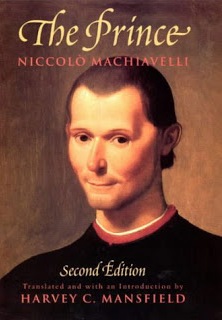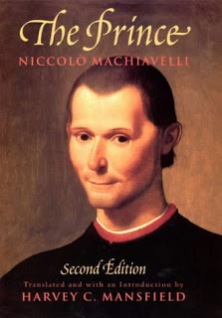1. Do Now: Reading and Discussion from the speech of James I to the English Parliament in 1609 (50 minutes)
- Practice annotating
- Connect ideas presented in previous lessons
- Identify the new term absolute monarchy through a primary source.
Directions: Read James I’s 1609 speech to the English Parliament found below. While reading his speech ANNOTATE any ideas you believe Immanuel, Kant and Niccolo Machiavelli would have supported. While annotating James I’s speech, concentrate on the questions below. After annotating be sure to write notes on the class discussion:
The following speeches of James I summarize his views on the divine right theory of kingship and were addressed to Parliament in 1609 and are noted in in James Harvey Robinson, Readings in European History, 2 vols (Boston: Ginn & Company, 1906), 2: 219-220.
Estate of monarchy is the supremest thing upon earth; for kings are not only God’s lieutenants upon earth, and sit upon God’s throne, but even by God himself they are called gods. There be three principal similitudes that illustrate the state of monarchy: one taken out of the word of God; and the two other out of the grounds of policy and philosophy. In the Scriptures kings are called the gods, and so their power after a certain relation compared to the divine power. Kings are also compared to fathers of families; for a king is truly parens patriae, the politic father of his people. And lastly, kings are compared to the head of this microcosm of the body of man.
Kings are justly called gods, for that they exercise a manner or resemblance of divine power upon earth; for if you will consider the attributes to God, you shall see how they agree in the person of a king. God hath power to create or destroy, make war or unmake at his pleasure, to give life or send death, to judge all and to be judged nor accountable to none, to raise low things and to make high things low at his pleasure, and to God are both soul and body due. And the like power have kings: they make and unmake their subjects, they have power of raising and casting down, of life and of death, judges over all their subjects and in all causes and yet accountable to none but God only. They have power to exalt low things and abase high things, and make of their subjects, like men at the chess, — a pawn to take a bishop or a knight — and to cry up or down any of their subjects, as they do their money. And to the King is due both the affection of the soul and the service of the body of his subjects. . . .
I would wish you to be careful to avoid three things in the matter of grievances:
First, that you do not meddle with the main points of government; that is my craft: tractent fabrilia fabri, — to meddle with that were to lessen me. I am now an old king; for six and thirty years have I governed in Scotland personally, and now I have accomplished my apprenticeship of seven years here; and seven years is a great time for a king’s experience in government; therefore there should not be too many Phormios to teach Hannibal: I must not be taught my office.
Secondly, I would not have you meddle with such ancient rights of mine as I have received them from my predecessors, possessing them more majorum; such things I would be sorry should be accounted for grievances. All novelties are dangerous as well in a politic as in a natural body, and therefore I would be loath to be quarreled in my ancient rights and possessions; for that were to judge my unworthy of that which my predecessors had and left me.
And, lastly, I pray you beware to exhibit for grievance anything that is established by settled law, and whereunto (as you have already had a proof) you know I will never give a plausible answer; for it is an undutiful part in subjects to press their king, wherein they know beforehand he will refuse them.
2. Determine if You Agree With Machiavelli’s Teachings 15 Minutes
Purpose:
- Start thinking and discussing Machiavelli’s ideas.
Directions: Save this SAG as Unit 6 Lesson 4 How did Machiavelli represent a shift in political theory?
1) Which of the below quotes is more true?
3. Focused Discussion
- Practice note-taking during class discussion
- Clarify some of Machiavelli’s ideas
- Enhance listening skills
|
What Machiavelli Believes
Leaders Should Possess |
||
|
Skills
|
Traits (Characteristics)
|
Powers
|
4. Short Video on Machiavelli’s The Prince
- Identify the difference between Sacred vs. Secular thinking
- Introduce Machiavelli’s beliefs about how a political ruler should behave. 20 Minutes
Directions: While watching the “The Political Principles of The Prince” use the guiding questions below to gather evidence for the focus question.
1. Where did Machiavelli live and how did this compare to Ancient Greece? Was the idea of living in a city-state a new idea?
2. What is the purpose of Machiavelli’s The Prince?
3. List the behaviors a political leader must do in the organizer found in your Student Document.
According to Machiavelli, must a political leader act more “sacred” than “secular”? What is the purpose of a political leader acting “sacred”?
4. Machiavelli said, I COMPARE FORTUNE TO ONE OF THOSE VIOLENT RIVERS WHICH, WHEN THEY ARE ENRAGED, FLOOD THE PLAINS, TEAR DOWN TREES AND BUILDINGS EVERYONE FLEES BEFORE THEM EVERYBODY YIELDS TO THEIR IMPETUS. THERE IS NOT POSSIBILITY OF RESISTENCE. YET ALTHOUGH SUCH IS THEIR NATURE ONE MAY STILL TAKE PRECAUTIONS WHEN THEY ARE FLOWING QUIETLY BUILDING DAMS AND DIKES TO CONTROL THEM IN FLOOD TIME. SO IT IS WITH FORTUNE.
What was Machiavelli saying a political leader should do?
5. According to Machiavelli what are the requirements of power and survival for a political leader?
6. What did Machiavelli mean when he said, Get real? Who was he speaking to?
7. What did Machiavelli mean when he said, That the gap between how a man should live and how one lives is so wide that the man that neglects what is actually done for what should be done is on the way to self-destruction.
8. What did Machiavelli learn from direct observation? In other words, what was Machiavelli’s empirical evidence about human nature?
- Utilize video to understand vocabulary.
Purpose:
- Inform others of your comprehension of today’s lesson
- Practice academic essay writing



